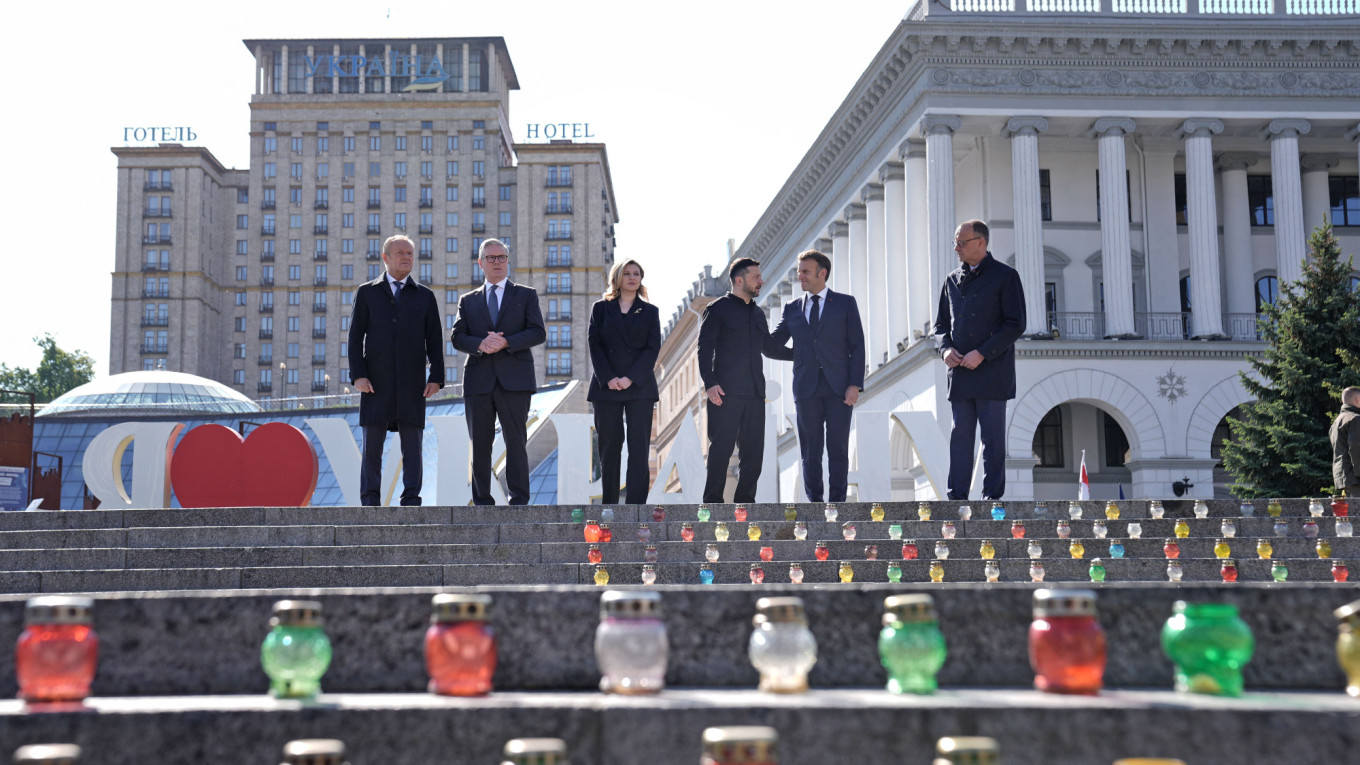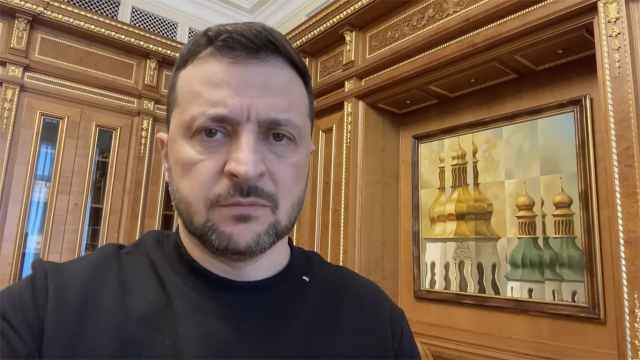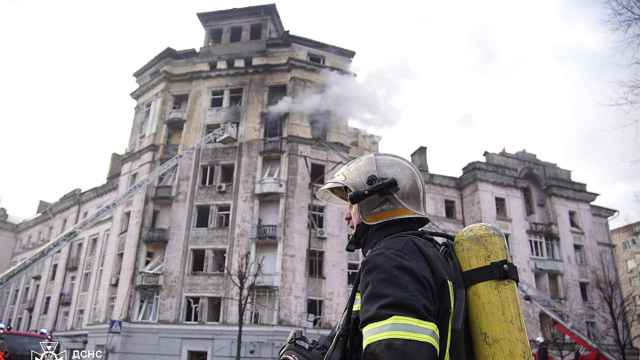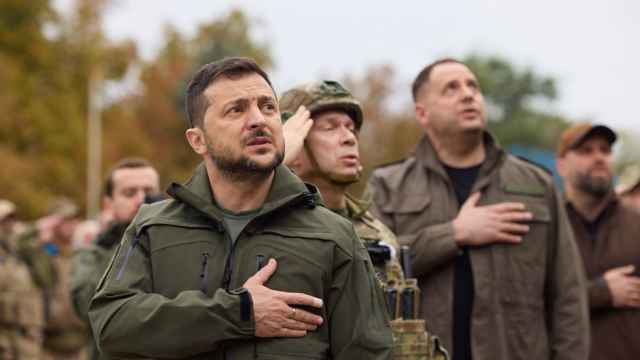Ukraine and four European leaders pressed Russia on Saturday to accept a 30-day unconditional ceasefire starting Monday, threatening Moscow with coordinated sanctions if it did not comply.
The ultimatum was given after talks in Kyiv attended by President Volodymyr Zelensky and the leaders of Britain, France, Germany and Poland.
The United States and other countries back the proposal, they said.
The Kremlin's spokesman told CNN that Moscow will "think through" the proposal, but stressed "there are lots of questions" and that Russia is "resistant to any kind of pressure."
President Vladimir Putin did not immediately comment.
The unprecedented visit was the first time the leaders of the four European nations had made a joint trip to Ukraine.
"We have just now... decided to support a ceasefire which will begin next Monday, without any preconditions," France's President Emmanuel Macron told a press conference.
Leaders from about 20 other member countries of the "coalition of the willing" supporting Ukraine held a videoconference with Macron, German Chancellor Friedrich Merz, British Prime Minister Keir Starmer, Polish Prime Minister Donald Tusk and Zelensky.
"In the event of a violation of this ceasefire, we have agreed that massive sanctions will be prepared and coordinated between Europeans and Americans," Macron said.
The United States and Ukraine have been for weeks pushed a similar proposal, which Russia has not accepted.
'Absolute unity'
U.S. President Donald Trump had threatened to walk out of talks over the lack of progress on ending the war. Trump vowed during the U.S. election campaign to halt the conflict within a day of taking office.
Kyiv and its allies had feared that Trump was pivoting towards Moscow's position, because he has clashed with Zelensky. But Trump has recently expressed growing impatience with Putin.
"The position we've now got to today is absolute unity across a whole range of countries around the world, including the United States, that there must be that 30-day unconditional ceasefire," Starmer said.
The five leaders in Kyiv held a "fruitful" call with Trump to update him on the meeting, Ukrainian Foreign Minister Andrii Sybiha said.
"For the first time in a long time we had a feeling that the whole free world is truly united," Poland's Tusk said.
"We know that the real test is before us and before Putin. We will be waiting for Russia's reaction."
European Commission President Ursula von der Leyen also supported the truce that she said "must be implemented without pre-conditions to pave the way for meaningful peace negotiations."
'To build peace'
Macron said the ceasefire would be "mainly" monitored by the United States but that "Europeans will contribute." He said a truce would pave the way for "immediate work and negotiations with parties involved to build a robust and lasting peace."
The French leader has not been to Kyiv since June 2022, when he went with the Italian and German leaders of the time.
The European leaders were later seen embracing Zelensky and joined him in placing lanterns at a memorial for fallen soldiers in Kyiv.
For Merz, who took office only this week, it was his first visit to Ukraine as chancellor.
The symbolic show of European unity came a day after Putin struck a defiant tone at a Moscow parade marking 80 years since victory in World War II.
Putin ordered a unilateral three-day truce from Thursday through Saturday. But a Ukrainian army brigade operating in the east told AFP the intensity of fighting had remained "pretty much the same."
Serhiy, head of the evacuation department of a brigade in the eastern Donetsk region, said the number of wounded remained "the same as before the ceasefire."
Viktor, the driver of an evacuation ambulance in the Donetsk region, said there was still fighting, but less artillery and missiles.
He did not believe Russia would stick to a 30-day ceasefire. "They cannot be trusted, they are not a country you can trust," he said.
A Message from The Moscow Times:
Dear readers,
We are facing unprecedented challenges. Russia's Prosecutor General's Office has designated The Moscow Times as an "undesirable" organization, criminalizing our work and putting our staff at risk of prosecution. This follows our earlier unjust labeling as a "foreign agent."
These actions are direct attempts to silence independent journalism in Russia. The authorities claim our work "discredits the decisions of the Russian leadership." We see things differently: we strive to provide accurate, unbiased reporting on Russia.
We, the journalists of The Moscow Times, refuse to be silenced. But to continue our work, we need your help.
Your support, no matter how small, makes a world of difference. If you can, please support us monthly starting from just $2. It's quick to set up, and every contribution makes a significant impact.
By supporting The Moscow Times, you're defending open, independent journalism in the face of repression. Thank you for standing with us.
Remind me later.






